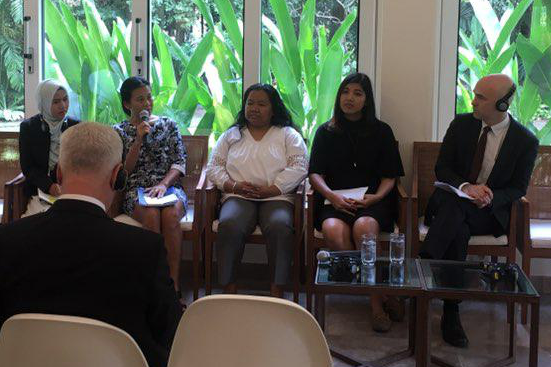
Dec 7, 2018 | Events, News
On 7 December 2018, the ICJ, together with the Embassy of the Federal Republic of Germany to Thailand, held an event at the German Ambassador’s Residence in Bangkok to mark Human Rights Day.
This was the fourth event co-hosted annually by the ICJ and the German Embassy as an early commemoration of International Human Rights Day, which falls on 10 December every year on the anniversary of the adoption of the Universal Declaration of Human Rights in 1948.
Ambassador-Designate H.E. Georg Schmidt delivered the opening address for the event, highlighting the importance of the principle of universality of human rights and noting the 70th anniversary of the Universal Declaration of Human Rights where that principle was enshrined.
ICJ’s Asia and the Pacific Director Frederick Rawski then delivered opening remarks, welcoming Germany’s long-standing support of the work of ICJ and its partners in Thailand in advancing the rule of law and human rights. He highlighted some positive developments in the human rights situation and stressed upon continuing challenges, in the context of potential upcoming elections in February 2019. He also recognized the crucial work of human rights defenders in Thailand.
Yaowalak Anuphan, Head of Thai Lawyers for Human Rights (TLHR), opened the discussion on the current human rights situation in Thailand, particularly focusing on challenges in the legal landscape and fundamental freedoms in the context of potential upcoming elections.
A panel discussion on prevailing human rights concerns then followed, moderated by ICJ’s Frederick Rawski. The discussion touched on a range of themes including land rights and the rights of indigenous peoples; human rights violations in the Deep South; Business and Human Rights and Thailand’s National Action Plan on Business and Human Rights; and refugee and migrants’ rights.
The panelists were:
- Pornpen Khongkachonkiet, Director, Cross Cultural Foundation;
- Waesonk Baneng, Lawyer, Muslim Attorney Centre Foundation;
- Sor Rattanamanee Polkla, Coordinator and Lawyer, Community Resource Centre Foundation;
- Yuhanee Jehka, Legal Officer, Asylum Access Thailand.
Approximately 80 individuals from Thai civil society, the diplomatic community, affected communities, academia, and Thailand’s Ministry of Justice and Ministry of Foreign Affairs attended the event.
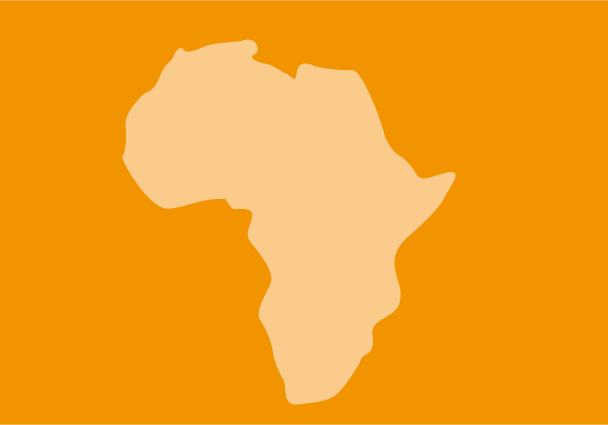
Dec 6, 2018 | News
JOHANNESBURG – The ICJ condemns the ongoing violence committed against and intimidation of community members of the Marievale Community Association. Last night a petrol bomb was thrown onto the roof of Chris Koitsioe’s home at approximately 1am while his wife was asleep and alone.
Chris is a community leader and a former SANDF staff sergeant who has consistently opposed the community’s eviction and mistreatment by the SANDF.
The ICJ calls on President Ramaphosa, as Commander in Chief of the SANDF, the Minister of Defence Nosiviwe Mapisa-Nqakula and Lieutenant General Lindile Yam to condemn these outrageous and persistent attacks on members of the community. Furthermore, we call on the SANDF and Minister of Defence and other public officials to comply with and implement all court orders relating to the Marievale community and ensure the safe, expeditious and unimpeded return of community members to their homes. The ICJ further calls for the authorities to openly and transparently investigate this assault on Mr Koitsioe’s home and bring the perpetrators to justice.
The Community was unlawfully evicted from their homes on an abandoned army base near Nigel, Johannesburg South, in late November 2017. They have won repeated court orders from the South and North Gauteng High Courts, ordering the SANDF to return them to their homes and condemning their ill treatment by SANDF members during and after their eviction.
Most recently, with the assistance of Lawyers for Human Rights, the community approached the North Gauteng High Court, seeking the arrest of the Minister of Defence and several army generals involved in the evictions for a failure to comply with orders of the High Court requiring them to be returned to their homes. Though last week, this contempt of court order was denied by the North Gauteng High Court, the court reiterated that the community is to be returned to their homes by Friday 7 December 2018.
Attorney at LHR, Ms. Louise Du Plessis expressed that the “LHR is deeply concerned about the ongoing unlawful conduct taking place at Marievale, especially because of the suspected involvement of the SANDF”. She added: “although, at this stage it is merely an allegation that the SANDF is responsible for the attack on Chris’ family, there is good reason to believe that [Chris] is being targeted for leadership role in the fight to see justice done for the Marievale community, after the appalling and callous eviction at the hands of the SANDF”.
This serious attack on Mr Koitsioe’s home occurred directly in this context.
Mr Koitsioe says “members of the community resisting their eviction in court, feel that the army has encouraged and sown divisions in our midst deliberately”. He adds, “whether this attack was perpetrated with or without the influence and knowledge of the army, it is critical that the SANDF roundly condemn such attacks to prevent further violence against innocent community members seeking only to protect our constitutional rights and internationally recognized human rights”. He concludes “my family and I are traumatised, I have reason to believe that this attack was deliberately perpetrated when it was known that I would be out of town speaking to a group of 25 magistrates in Limpopo about the importance of understanding and protecting communities’ housing rights”.
“While the army should be a source of security for everyone in South Africa, the Marievale community have faced persistent and repetitive violations of their economic, social and cultural rights at the hands of the SANDF. Such conduct is a significant and serious threat to the rule of law” lamented Arnold Tsunga, ICJ Africa Director. “The ICJ is concerned at the pattern of similar attacks against other communities claiming their rights in court such as AbahlaliBaseMjondolo in KwaZulu-Natal and the Amadiba Crisis Committee in Xolobeni who have faced similar harassment, assault and even assassination for claiming their rights” added Tsunga.
Public authorities in South Africa has an obligation under international human rights law and standards to ensure that the bombing of Chris Koitsioe’s home and other such acts of violence and intimidation are promptly, independently and impartially investigated. Those responsible for such attacks must be brought to justice and victims of any human rights violations involved must receive effective redress and remedy.
In October 2018, the UN Committee on Economic, Social and Cultural Rights noted that it was “concerned at reports of human rights defenders, particularly those working to promote and defend the rights under the Covenant in the mining and environmental sectors, being threatened and harassed”. Koitsioe advises that the community has long suspected that part of the motivation for its eviction is the recent initiation of coal mining activities near their homes.
Further comment:
Chris Koitsioe| Marievale Community Association| C: +27738370265
Louise Du Plessis |Attorney | Lawyers for Human Rights C: +27823460744 E: louise(a)communitylaw.co.za
Timothy Fish Hodgson|Legal Adviser on Economic, Social and Cultural Rights| International Commission of Jurists| C: +27828719905 E; timothy.hodgson(a)icj.org
Further Resources:
The judgment handed down on 30 November 2018 is available here.
The judgment handed down in May 2018 is available here.
The judgment handed down in March 2018 is available here.
The judgment handed down in February 2018 is available here.
The South African Constitution is available here.
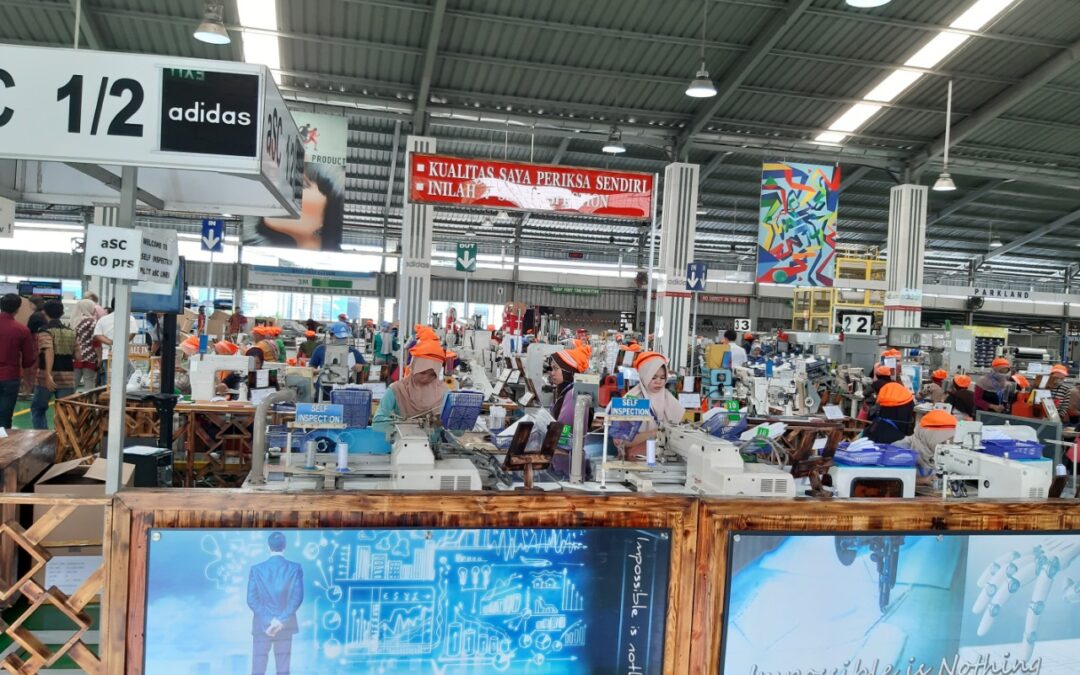
Dec 5, 2018 | News
From 28 November to 3 December 2018, a delegation of the ICJ carried out a learning and assessment visit to two factories in Indonesia that are part of the supplier network of the global brand adidas.
The ICJ delegation noted at the conclusion of the visit to two of the global brand’s supply chain factories a number of elements of good practice, highlighted in the full statement available below.
The mission did not aim to identify human rights impacts or to assess individual cases, their procedures and outcomes. While the ICJ assessment of the information gathered during the visit continues, the ICJ has already recommended improvements in transparency and public communication about the performance of adidas’ factory suppliers.
The ICJ also invited the companies to a broad reflection on the need to have a factory level grievance mechanism, instead of the existing compartmentalized system. Finally, adidas and partners need to also step up action in relation to the establishment of an effective community grievance mechanism.
The full statement can be downloaded in PDF format here: Statement-adidas-Indonesia-BusinessHumanRights-2018
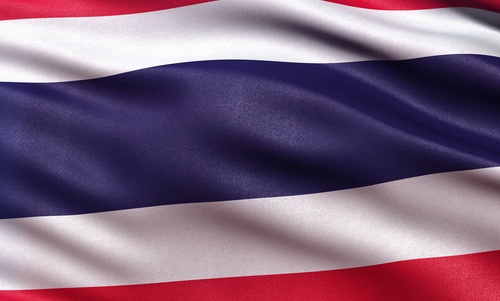
Dec 3, 2018 | Advocacy, News, Non-legal submissions
Today, the ICJ joined fifteen other organizations to call on the Thai authorities and Thammakaset Company Limited to ensure that criminal and civil defamation complaints brought by the company against human rights defenders Nan Win and Sutharee Wannasiri do not proceed.
The charges have been leveled in connection with work by the two defenders to bring attention to labour rights violations at a Thammakaset-owned chicken farm in Thailand.
The organizations further called on the Thai authorities to act to ensure that no person is held criminally liable for defamation, including by decriminalizing defamation in Thai law and protecting individuals from abusive litigation aimed at curtailing the rights to freedom of expression and access to information and other activities of human rights defenders.
Today, the Bangkok Criminal Court will hold preliminary hearings on the criminal defamation complaints filed by Thammakaset Co. Ltd. against the two human rights defenders.
“This is the most recent in a series of spurious legal cases brought by companies in Thailand aimed at intimidating human rights defenders and curtailing their important work in defence of human rights,” said Ian Seiderman, ICJ’s Legal and Policy Director.
“Thai authorities must take all necessary measures in law and in practice to ensure that private business entities do not misuse the law to interfere with human rights such as freedom of expression and access to information.”
On 12 and 26 October 2018, Thammakaset Co. Ltd. filed criminal and civil defamation complaints against Nan Win, a migrant worker from Myanmar, and Sutharee Wannasiri, a woman human rights defender and a former Human Rights Specialist with Fortify Rights.
The complaints related to a 107-second film published by non-governmental organization Fortify Rights on 4 October 2017 that called on Thai authorities to drop criminal defamation charges against 14 migrant workers at a Thammakaset-operated chicken farm and to decriminalize defamation in Thailand.
Nan Win was one of the above-mentioned 14 migrant workers and faces a criminal defamation suit for reportedly testifying about alleged labour rights violations he faced in the Thammakaset-operated farm. Sutharee Wannasiri faces criminal and civil defamation suits for reportedly sharing information about the Fortify Rights film on Twitter.
If convicted of criminal defamation, Nan Win faces up to four years’ imprisonment and/or a fine of up to 400,000 Thai Baht (more than US$12,150) and Sutharee Wannasiri faces up to six years’ imprisonment and/or a fine of up to 600,000 Thai Baht (more than US$18,200). Thammakaset Co. Ltd. is also seeking five million Thai Baht (US$151,400) in compensation for alleged damage to the company’s reputation in its civil defamation suit against Sutharee Wannasiri.
“We urge the Thai government not only to uphold their own legal obligations, but also to remind business enterprises in Thailand that they are also responsible for upholding human rights under international standards and domestic law,” said Seiderman.
Thailand-Drop defamation Nan Win Sutharee Wannasiri-Advocacy-Joint Statement-2018-ENG (Joint Statement, English, PDF)
Thailand-Drop defamation Nan Win Sutharee Wannasiri-Advocacy-Joint Statement-2018-THA (Joint Statement, Thai, PDF)
Background
On 12 October 2018, Thammakaset Co. Ltd. filed a criminal defamation suit under sections 326 and 328 of Thailand’s Criminal Code against Sutharee Wannasiri, a former Thailand Human Rights Specialist with Fortify Rights, for three comments she was alleged to have made on Twitter related to the Fortify Rights film.
On 26 October 2018, Thammakaset Co. Ltd. filed a criminal defamation suit under sections 326 and 328 of Thailand’s Criminal Code against Nan Win, one of the 14 migrant workers from Myanmar, for two interviews he gave in a Fortify Rights film and during a Fortify Rights press conference on 6 October 2017.
On the same day, Thammakaset Co. Ltd. also filed a civil defamation suit against Sutharee Wannasiri citing the above mentioned alleged Twitter comments and demanding five million Thai Baht (more than USD 142,000) in compensation for alleged damage to the company’s reputation.
The UN Human Rights Committee has clarified that defamation laws must ensure they do not serve, in practice, to contravene the rights to freedom of expression and information protected under article 19 of the International Covenant on Civil and Political Rights (ICCPR) and enshrined under articles 34, 35 and 36 of the 2017 Constitution of Thailand. While civil penalties are appropriate to achieve a lawful aim of protection of reputation, the imposition of such penalties must be proportionate and strictly necessary to achieve a legitimate purpose.
Thailand has an obligation under international human rights law, including the ICCPR, to protect persons against the action of businesses that impair the exercise of human rights. The U.N. Guiding Principles on Business and Human Rights also clarify that business entities have a responsibility to uphold human rights. In August 2018, Thailand launched a revised draft National Action Plan on Business and Human Rights in order to implement the U.N. Guiding Principles.
Contact
Ian Seiderman, ICJ Legal and Policy Director, email: ian.seiderman(a)icj.org
Other reading
For recent ICJ advocacy on similar criminal defamation proceedings launched against labour rights defender Andy Hall, see:
ICJ, Lawyers Rights Watch Canada, ‘Thailand: amicus in criminal defamation proceedings against human rights defender Andy Hall’, 26 July 2016
ICJ, ‘Thailand: verdict in Andy Hall case underscores need for defamation to be decriminalized’, 20 September 2016
For recent ICJ advocacy on the misuse of defamation laws in Thailand against human rights defenders, see:
ICJ, ‘Thailand: immediately stop criminal defamation complaint against torture victim’, 15 February 2018
ICJ, ‘Thailand: ICJ welcomes decision to end proceedings against human rights defenders who raised allegations of torture’, 1 November 2017
ICJ, ‘Thailand: stop use of defamation charges against human rights defenders seeking accountability for torture’, 27 July 2016
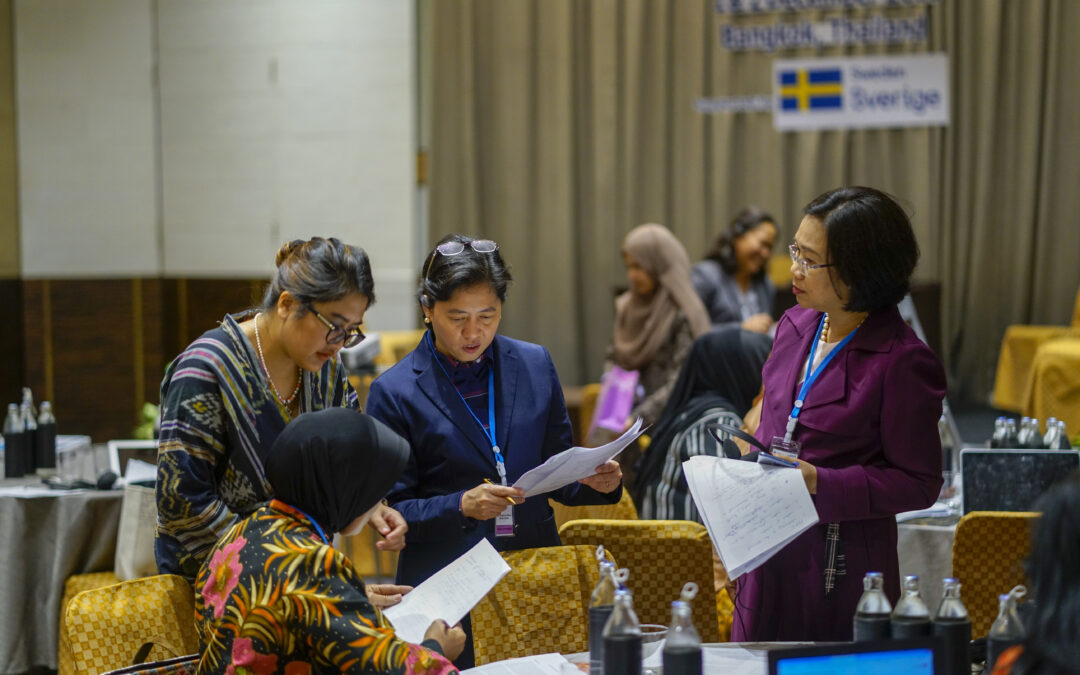
Dec 2, 2018 | Events, News
On 1-2 December 2018, the International Commission of Jurists (ICJ) held its 2018 Southeast Asia Regional Judicial Dialogue on enhancing access to justice for women in the region.
Participants included judges from Cambodia, Indonesia, Nepal, Pakistan, Philippines, Sri Lanka and Thailand.
The discussions, held in Bangkok, were focused around resources important for judges to aid in enhancing the capacity of their peers in eliminating gender discriminatory attitudes and behaviours towards women in their work. These resources include a training manual on the use of the Bangkok General Guidance for Judges in Applying a Gender Perspective, and a draft reference manual on women’s human rights and the right to a clean, healthy, safe and sustainable environment.
Frederick Rawski, ICJ’s Director of the Asia and the Pacific Programme, opened the dialogue by emphasizing how important it is for judges to be gender sensitive in their delivery of justice. This could only be done by applying a framework that gives primary attention on ensuring recognition of the applicable human rights, institutional support for the promotion of these rights, and accountability mechanisms for their implementation.
Roberta Clarke, Commissioner of the ICJ and Chair of the organization’s Executive Committee, noted that this judicial dialogue demonstrates the ICJ’s commitment to have a sustainable contribution to the implementation of international human rights standards at the domestic level. She hoped that the judges could contextualize the resources presented and bring these back to their countries for trainings of their peers.
This judicial dialogue is part of a joint project on access to justice for women that ICJ is implementing with UN Women.
Anna Karin Jatfors, UN Women-Asia Pacific’s Interim Regional Director shared that gender stereotypes and social norms which discriminate women are not unique in each country. She pointed out the importance of the ICJ and UN Women collaborating in this project to deconstruct this image to bring better access to justice to women in the region.
Overall, the dialogue was rich and substantive, with the full and active participation from all participating judges who shared their views and experiences on countering gender discrimination in cases before them. At the end of the judicial dialogue, the participating judges expressed strong interest to use the resources for capacity building initiatives of their peers in their own countries.
Contact
Emerlynne Gil, Senior International Legal Adviser, t: +662 619 8477 (ext. 206), email: Emelynne.gil(a)icj.org
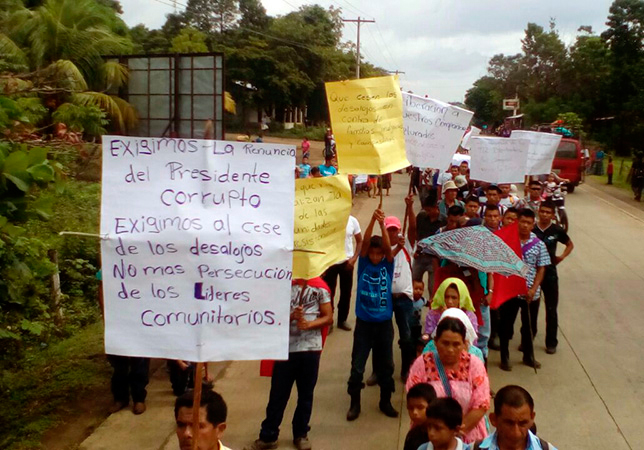
Nov 30, 2018 | Events
The conference on business and human rights in the Department of Izabal, Guatemala was held at the University of Geneva on 29 November 2018 and co-hosted with the Department of Public International Law and International Organization, Faculty of Law of the University of Geneva and the City of Geneva.
The main issue under review was the impact on the local communities of the operations of the Compañia Guatemalteca de Nickel (CGN-ProNico) a nickel mining company in El Estor, wholly owned by Solway Investment Group, a company registered in Zug, Switzerland.
Speaking at the conference, Prof. Marco Sassòli, a Commissioner of the International Commission of Jurists (ICJ), recommended there be an international mission to Izabal, Guatemala in order to understand the problems facing the local Q’eqchis communities as a result of the Solway nickel mining operations.
Other speakers included Ramon Cadena, the Director of the ICJ Central America office, Amalia Caal Coc, from the Guillermo Torielo Foundation in Izabal, Guatemala, Maynor Alvarez, the manager of the CGN Community Affairs Department, and Sandra Epal Ratjen, Deputb Executive Director at Franciscans International.
Dr Antonella Angelini from the Department of Public International Law and an expert in business and human rights was the conference moderator.
A more detailed account of the conference proceedings is available (download).










